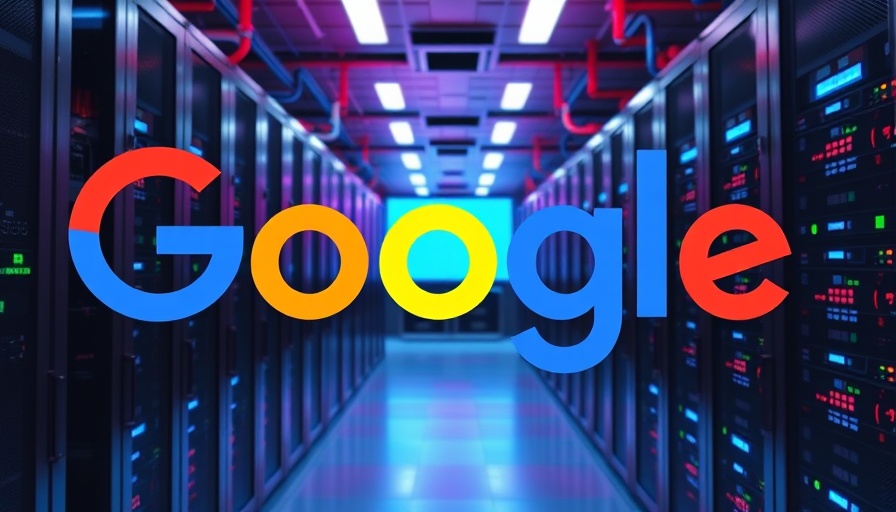
The Future of Google Search: Merging LLMs and In-Context Learning
Excitement is brewing in the world of AI and digital marketing as Google’s Jeff Dean has proposed an innovative union between Google Search and in-context learning (ICL). The combination of powerful search capabilities with the adaptive learning styles of large language models (LLMs) holds vast implications for businesses aiming to enhance their marketing strategies.
Understanding In-Context Learning and Its Importance
ICL enables models to analyze a context and draw insights from it, a fundamental approach for improving search results. By leveraging this method, LLMs can maintain attention on pertinent data, refining their response nuances to user queries. Such a capability means LLMs may eventually harness the entirety of the internet’s information, despite our current limitations where they respond with a fixed knowledge base.
Enhancing Search with Improved Contextual Understanding
Dean noted that Google Search is currently a shallow search, pulling from a vast index of data but lacking depth in understanding user intent. By adding a layer of intelligent learning that adjusts to context, search results could become not just more relevant, but more personalized. Imagine when someone types, "nearest cafe with outdoor seating," the system could account for personal preferences, past reviews, and current availability, thus enhancing user experience.
Challenges on the Horizon: Computational Demands
While the prospects are promising, Dean cautions that there are enormous computational challenges that this approach faces. Currently, LLMs can only manage millions of tokens due to quadratic complexities in processing. As businesses look to rely on these systems for decision-making and generating leads, addressing these constraints is crucial. Future innovations may pave the way for algorithms capable of digesting trillions of tokens efficiently.
Real-Life Applications: How Marketers Can Leverage AI
This integration can empower small business owners and marketers to provide unprecedented levels of detail and customization in their strategies. With AI-powered capabilities, they can tailor marketing campaigns based on nuanced user insights from search behavior, optimizing both digital advertising spend and customer engagement initiatives.
Counterarguments: The Risk of Over-Reliance on AI
However, the enthusiasm for AI-driven innovations brings challenges, including the risk of hallucination—where models generate incorrect or misleading information. Understanding as well as learning from data remain vital. A well-informed marketer must ensure a balance between leveraging AI technologies and validating their outputs with human insights.
Pioneering AI-Driven Marketing Strategies
The marriage between LLMs and search technology can potentially redefine how small businesses connect with potential customers. By utilizing enhanced retrieval-augmented generation (RAG) methods alongside traditional keyword searches, marketers can tap into deep-dive analytics that boost SEO efforts while maintaining relevance.
A Potential Game Changer for SEO
Digital marketers will need to adapt to this shift. By integrating strategy that aligns with emerging AI capabilities, businesses can become more competitive in an evolving landscape. Those who capitalize on these advancements early can gain significant advantages over competitors.
Call to Action: Stay Ahead in the AI Revolution
Keeping up with trends in AI and incorporating these technologies into marketing strategies can ensure business growth and adaptability in an increasingly dynamic digital space. Dive into resources available for learning how to enhance your digital presence through smart integration of AI tools.
 Add Row
Add Row  Add
Add 




Write A Comment